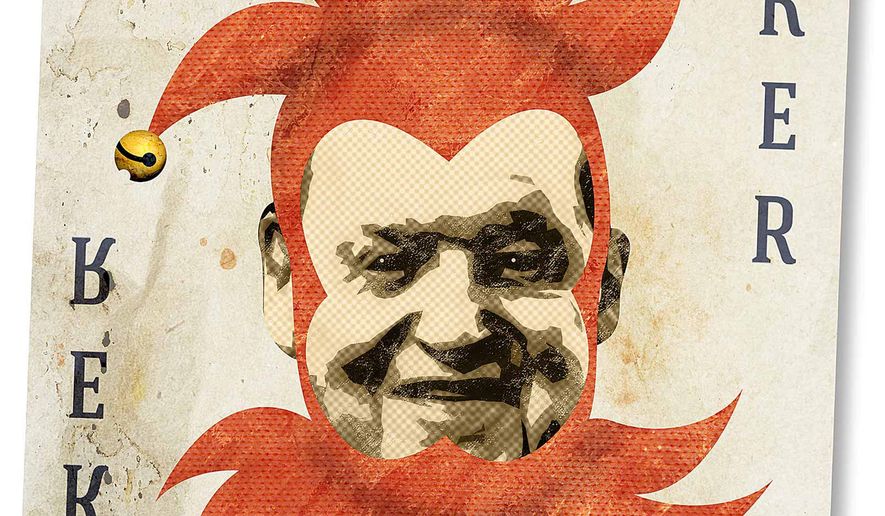OPINION:
President Trump’s Department of Justice may soon release a reinterpretation of a 1961 law called the Wire Act that could effectively outlaw all online gambling in the United States.
It would be the culmination of the efforts of Sheldon Adelson, the billionaire owner “brick and mortar” casinos and funder of the astroturf lobbying group the Coalition to Stop Internet Gambling (CSIG). Mr. Adelson’s crusade against online gaming is little more than crony capitalism, of trying to use the government to shut down the competition.
Prior to 2011, the federal government could use the Wire Act to prohibit all types of Internet gaming. In 2011, President Obama’s Department of Justice (DOJ) stated that the Wire Act only applied to sports betting, which was consistent with both the history of the Wire Act and rulings from the First and Fifth Circuit Court of Appeals.
The 2011 interpretation left state governments free to decide whether they wanted to legalize other types of online gambling within their own borders. Delaware, Nevada, New Jersey and Pennsylvania have done just that while other states such as California and New York are considering it. Should the Trump Justice Department reverse course, Internet gaming such as poker sites, online casinos and the online purchase of lottery tickets could be completely shut down.
Mr. Adelson has said that he is “willing to spend whatever it takes” to shut down online gambling. Much of his funds have gone into the public relations campaigns of CSIG that warn of the “grave dangers” of Internet gaming. CSIG proves that politics makes for strange bedfellows. The coalition consists not only of business interests like Bonanza Casino, Monarch Casino & Resorts Inc. and National Association of Convenience Stores, but also religious groups such as the Universal Baptist Church, the Christian Family Coalition and various state chapters of the Faith and Freedom Coalition.
While many of those latter groups have genuine moral concerns about online gambling, it is highly doubtful that the business interests involved do. Rather, they are participating in CSIG for the same reason that Mr. Adelson is leading this crusade, to shut down competition. That is supported by the fact that they make money in ways similar to online gaming companies.
For example, CSIG claims that Internet gaming targets the vulnerable by making gambling available to “every poverty stricken neighborhood 24 hours a day, seven days a week.” But so do many of the small stores represented by the National Association of Convenience Stores. Convenience stores sell about 50 percent of lottery tickets sold in the United States, and numerous studies have shown that people who play the lottery are disproportionately poor. If the National Association of Convenience Stores was genuinely concerned about gambling that target the poor, it would oppose the purchase of all lottery tickets, not just those online. That it doesn’t shows that it is only interested in eliminating competition by shutting down the online purchase of lottery tickets.
A YouTube video produced by CSIG claims that Internet gambling “opens the door to unscrupulous characters. They target the young and elderly, making it all look fun and easy until someone gets in over their head.” However, Monarch Casinos’ web page encourages potential customers to “enjoy the most exciting slots and earn generous rewards.”
Bonanza Casino’s website proclaims that it is “Your seat to the newest slots! Play them here first, up to 90 days before other local casinos!” The Venetian, which Mr. Adelson owns, offers customers an “an extensive selection of the best table games in Las Vegas,” according to its website. The Venetian also enables potential customers to sign up for its casino credit and the rewards program online. Wire transfers are an acceptable form of repayment for the credit line. In short, the casinos involved in CSIG do their best to make gambling look “fun and easy” on their websites. As for targeting, Venetian ads will show up on your Facebook page and YouTube pages not long after visiting the Venetian’s website.
A reversal of the 2011 interpretation of the Wire Act could have a devastating impact, disenfranchising jobs and billions of dollars invested online gaming. Even if that didn’t happen, it could slow investment in online gaming to a crawl. States governments and new investors would wait before taking any action on Internet gaming until the new interpretation worked its way through the courts.
Mr. Adelson’s crony capitalism crusade is an affront to liberty. Individuals should be free to choose where to spend their gaming dollars, be it online or in brick-and-mortar casinos. Mr. Trump’s DOJ should scuttle its efforts to reinterpret the Wire Act. To do otherwise would be a triumph for crony capitalism.
• David Hogberg is a free-lance writer living in Maryland. He is also a professional poker player who plays at a brick-and-mortar casino.




Please read our comment policy before commenting.